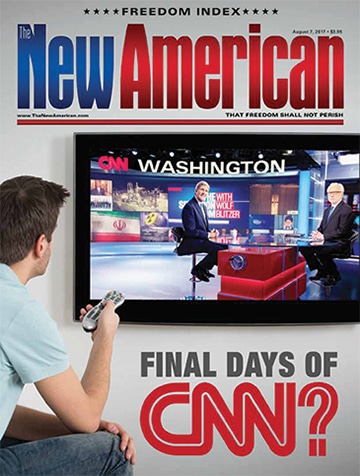Do Free Markets Lead to Concentration of Wealth?
It is frequently maintained, by the enemies of the free market, that “too much” capitalism leads inevitably to the monopolistic concentration of wealth in the hands of a few oligarchs. Citing the “robber barons” of 19th-century America, as well as the undeniable modern global trend toward more and more wealth being concentrated in fewer and fewer hands, foes of laissez-faire capitalism regard such inequities as inevitable outcomes of pure market forces, and urge various forms of government interventionism — wage and price controls, regulations to “level” the competitive playing field, and trust-busting legislation, for example — as remedies.
But in a true free market, government at all levels would, as far as practicable, have a policy of strict laissez-faire, that is, of non-interference in the workings of the free market. Men would thus be free to buy, sell, lend, produce, hire, and pay according to whatever rates and terms they mutually agree upon. Government’s role in such an economy would be only as a guarantor that neither force nor fraud goes unpunished. Competition among businesses would be confined to finding ways to produce more and better products for lower prices, to the benefit of the consumer; no measures to compel anyone as to their choices of what to buy or sell, or how much to ask or pay for economic goods, would ever be instituted. As a result, established businesses would compete on equal terms with startups, and wherever the latter are more cost-effective, the former will lose market share. The largest companies would always be those most effective at satisfying consumers, and would only enjoy their success as long as they are able to do so. Under such economic circumstances, a true “trust” is an impossibility.
The temptation is strong for businessmen to enlist the coercive apparatus of the state to stifle would-be competitors. For their part, politicians are always eager to expand their power by interfering in the free market on behalf of those willing to trade money and other inducements for political favors. Robert Fulton, who built the first commercial steamboat at the beginning of the 19th century, managed to secure an exclusive license from the state of New York to operate his vessel, boxing out would-be competitors. It was not until rival Cornelius Vanderbilt forced the issue in the courts, by illegally operating a steamboat of his own between New York and New Jersey, that the Supreme Court finally struck down Fulton’s monopoly.
Throughout the 19th century, many wealthy “robber barons” did indeed establish monopolies in their respective markets — but always by procuring favors from politicians.
Historian Thomas DiLorenzo makes a helpful distinction between “market entrepreneurs” and “political entrepreneurs.” The former are businessmen who compete only according to free market principles, refusing to enlist government as an ally against competitors. The latter are those who seek government grants and subsidies, and insist on the need for government regulations — the costs of which they are positioned to pay, thanks to lawyers and accountants on retainer. Would-be new competitors, of course, cannot afford the burden of non-productive employees such as lawyers, whose sole purpose is compliance with arbitrary government rules.
In this way have many economic sectors in the United States become monopolistic, with one or a very small handful of huge corporations in permanent control, and new competitors nonexistent. The Big Three automobile manufacturers are an excellent example. Routinely touted as “too big to fail,” Ford, Chrysler, and GM have been the only mass manufacturers of automobiles in the United States for decades. They preside over an industry so overburdened with government regulations and controls that a new startup would find it all but impossible to topple the Big Three’s market dominance. Moreover, the Big Three frequently receive massive government subsidies for R&D, and have been the beneficiaries of countless government bailouts during times of economic distress. They are led by corporate celebrities, such as Lee Iacocca, the former CEO of Chrysler Corporation, who are masters of political entrepreneurship — caviling to politicians while pleading for bailouts, subsidies, and other special favors.
The success of these “political entrepreneurs”— the real monopolists — depends less on the free market than upon the willingness of government to subsidize and otherwise protect their activities. Such enterprises tend to be wasteful and inefficient, having no incentive to be otherwise. And they tend to become bloated and bureaucratic, like government itself. Monopolies and the concentration of ever more wealth in the hands of ever fewer well-connected elites are thus products of “crony capitalism” and its more extreme ideological cousin, socialism — not the free market.
On the other hand, under a strict free market, where government is barred from such market intervention and blatant favoritism, anyone can become wealthy and successful. The market naturally selects for those businesses, whether established or startup, that provide the best products at the best price. Part of such a system includes providing the best jobs for the best compensation, since companies also must compete for the best employees without state interference. There have been, and remain, many true “market entrepreneurs” in America. Besides the aforementioned Cornelius Vanderbilt, another shining example from the 19th century was railroad entrepreneur James J. Hill, who built the Great Northern Railroad from Minnesota to the Pacific Ocean and, unlike contemporaries such as Jay Gould, spurned political cronyism. Beloved of employees and landowners alike, Hill was generous to a fault, offering incentives such as free seed to farmers willing to live near his railroad.
In an economy where the government micromanages and subsidizes most economic sectors and where private property rights are extremely diluted, it is hard to imagine the benefits of a true free market. But an economy where people are free to produce, buy, and sell as they choose is the only path to genuine prosperity and growth.
Photo: Thinkstock


